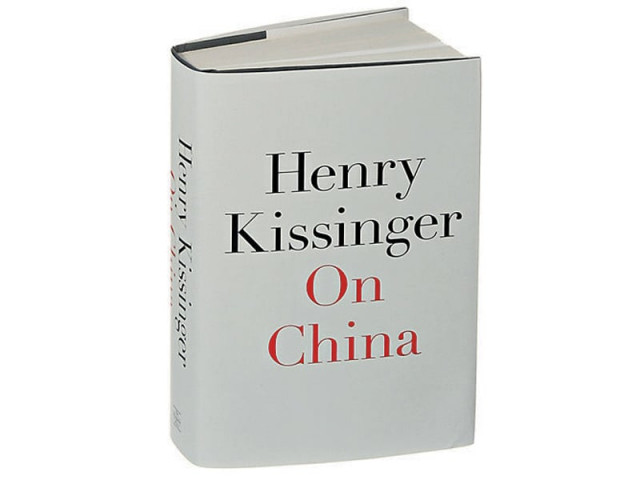Book review: On China - courting the dragon
Kissinger chooses to laud the way China has come to this stage by defying the Western logic of democratic growth.

Book review: On China - courting the dragon
With a title as generic as “On China”, I wondered what the book would hold for me. Would it be a collection of memoirs? An academic study of ancient Chinese culture and its impact upon the mindset of contemporary Chinese leaders? Perhaps it would provide a historical justification of the paradoxical marriage of political socialism and economic capitalism as a result of the contradictory visions of Mao Zedong and Deng Xiaoping. Or it could be an analysis of the queerly competitive as well as cooperative relationship evolving between the US and China. As it turns out, this 586-page book is all of the above.
The book shows how China’s foreign policy was shaped by its history, coinciding with its shifting policies of inward isolationism and outward trade activism. The narrative voice can go from being analytical about historical events to being merely descriptive about the personal meetings of Kissinger with Chinese leaders.
Kissinger’s aim appears to be to make the reader understand the Orient’s (ie China’s) own indigenous ethos, its cultural uniqueness as it were, without comparing it to the Western tradition of logocentricism, which glorifies the liberal-humanist values of modernity. Yet, he is hard-pressed to justify the human rights abuses of successive Chinese regimes and cannot give any reason as to why these concerns should not be raised on a global stage. Then again, given the financial interests of Kissinger in the state-capitalism of today’s China, the impartiality of his thesis is far from immaculate. The book also lacks the academic rigour required of such critiques such as Edward Said’s Orientalism.
Another question which has divided analysts is the reason behind the shift in US foreign policy to support China against the Soviet Union in the 70s. Some critics contemplate that heightened hostility between China and the Soviet Union might have brought about the demise of both the socialist states much earlier, and the US would also then have emerged victorious from the Vietnam War. Mr Kissinger, who would be best suited to comment on this, simply passes over this important crossroad of history when describing the politics of that era, without trying to explain the logic behind this move by Nixon and himself.
The American romance with China in the 70s started with the help of Pakistan. Kissinger mentions Pakistan’s nuclear program in passing, without criticising it outright, and hesitates to brand Pakistan a “rogue state” — all of which has predictably enraged the neo-cons of his country.
On China does not question the consequences of the rise of China as a global power and the financial impact of the growing US debt that China holds. Instead, Kissinger chooses to laud the way China has come to this stage by defying the Western logic of democratic growth through equality in opportunity and strictly monitored rules of competitive entrepreneurship.
The conclusion given by Kissinger is, however, more or less obvious: that an amicable US-China relationship is necessary for global financial stability and long-term peace. Otherwise, he warns, the world might plunge into the chaos of nuclear proliferation, armed conflict, energy crisis, and what not. In Kissinger’s words, both countries are “too large to be dominated, too special to be transformed and too necessary to each other to be able to afford isolation.”
Published in The Express Tribune, Sunday Magazine, December 25th, 2011.



















COMMENTS
Comments are moderated and generally will be posted if they are on-topic and not abusive.
For more information, please see our Comments FAQ